The Story Of A Very Special Mini Moke
Images: David Whale
This is the story of a very special Mini Moke. In the ‘50s and ‘60s, the British Motor Corporation manufactured 'pre-production' models, usually producing ten vehicles to test the capabilities of the manufacturing line and various features that might or might not be incorporated into production vehicles. My car is validated by the British Motor Industry Heritage Trust as pre-production model 6 out of 10.
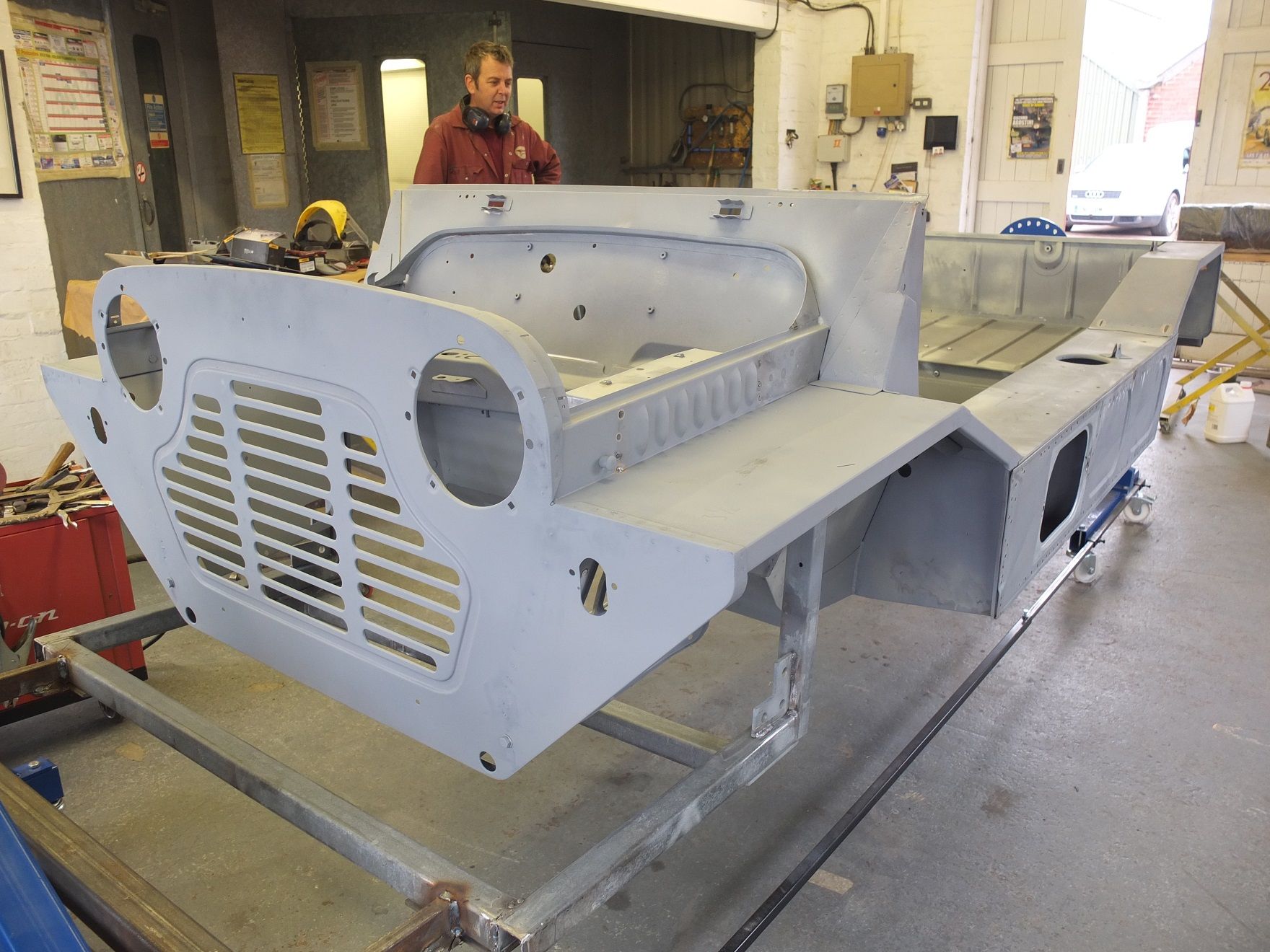
It is special for another reason: the first owner was in the Devon County Fire Service. In their vehicle records, there are 15 registration marks of Mini Mokes, categorized as 'General Purpose Vehicles—used to carry personnel and portable pumps.' In Devon, there is open moorland that catches fire easily in the summer. One concept was to equip the Mokes with equipment to fight these fires where larger fire engines could not reach. In reality, they were used for various tasks and painted fire service yellow; we found traces of the colour during restoration!
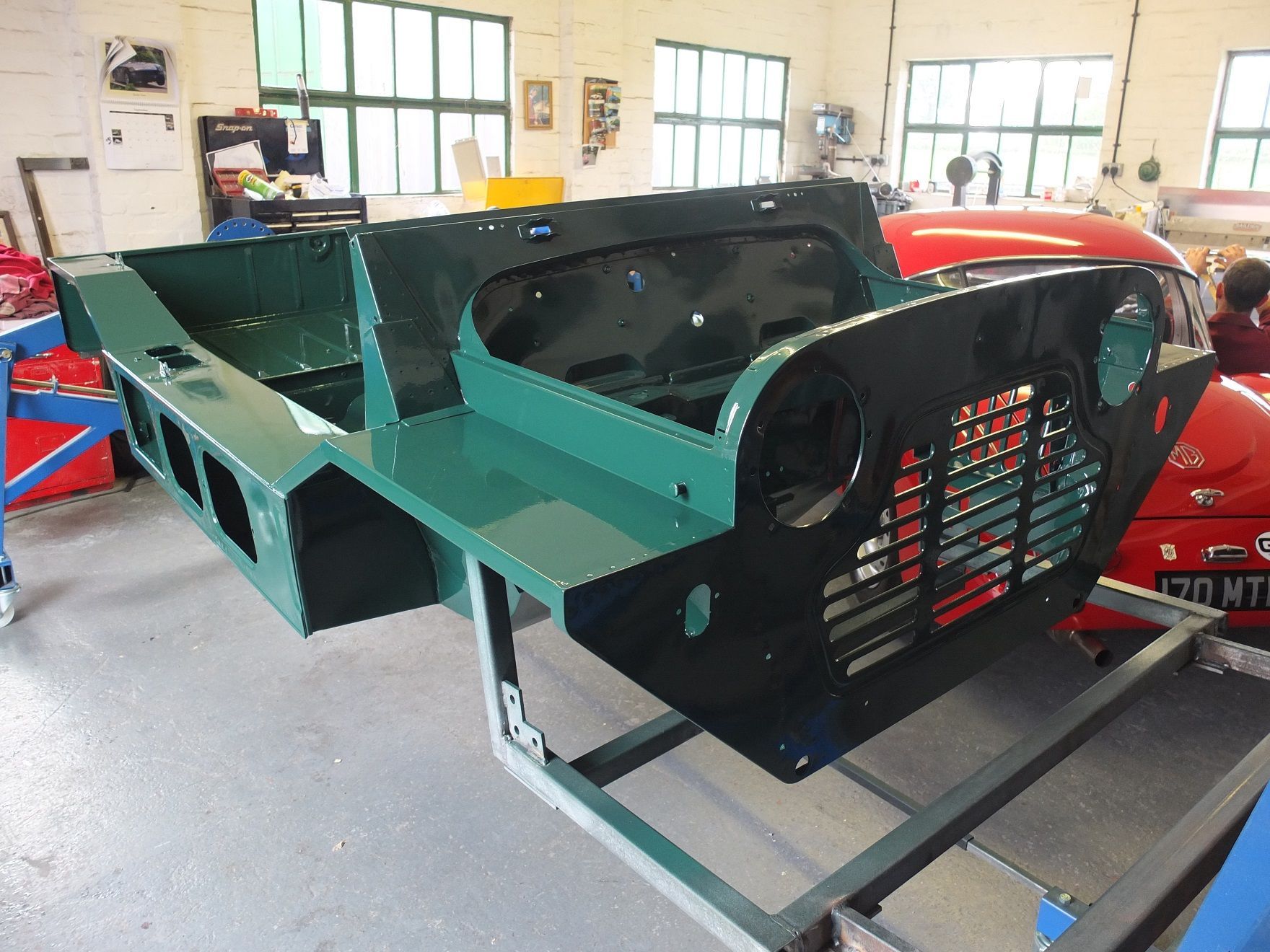
I found the car for sale in a local newspaper advertisement from a Volkswagen dealer. When I saw the car first registered in April 1964, I was suspicious as I knew production did not commence until the following month. A clandestine visit to the dealer established the chassis number, and research with BMIHT confirmed that this was a unique car, unbeknownst to the existing owner. I made the purchase very quickly!

The car has only covered 19,000 miles from new. Mechanically, it was in good condition, but the body, like most Mokes, had rotted in the longitudinal box sections. When I purchased the car in 1993, I was lucky, as a large quantity of original Mini Moke body panels had just been found in Australia. I purchased everything I could and stored the panels in a dry storage.
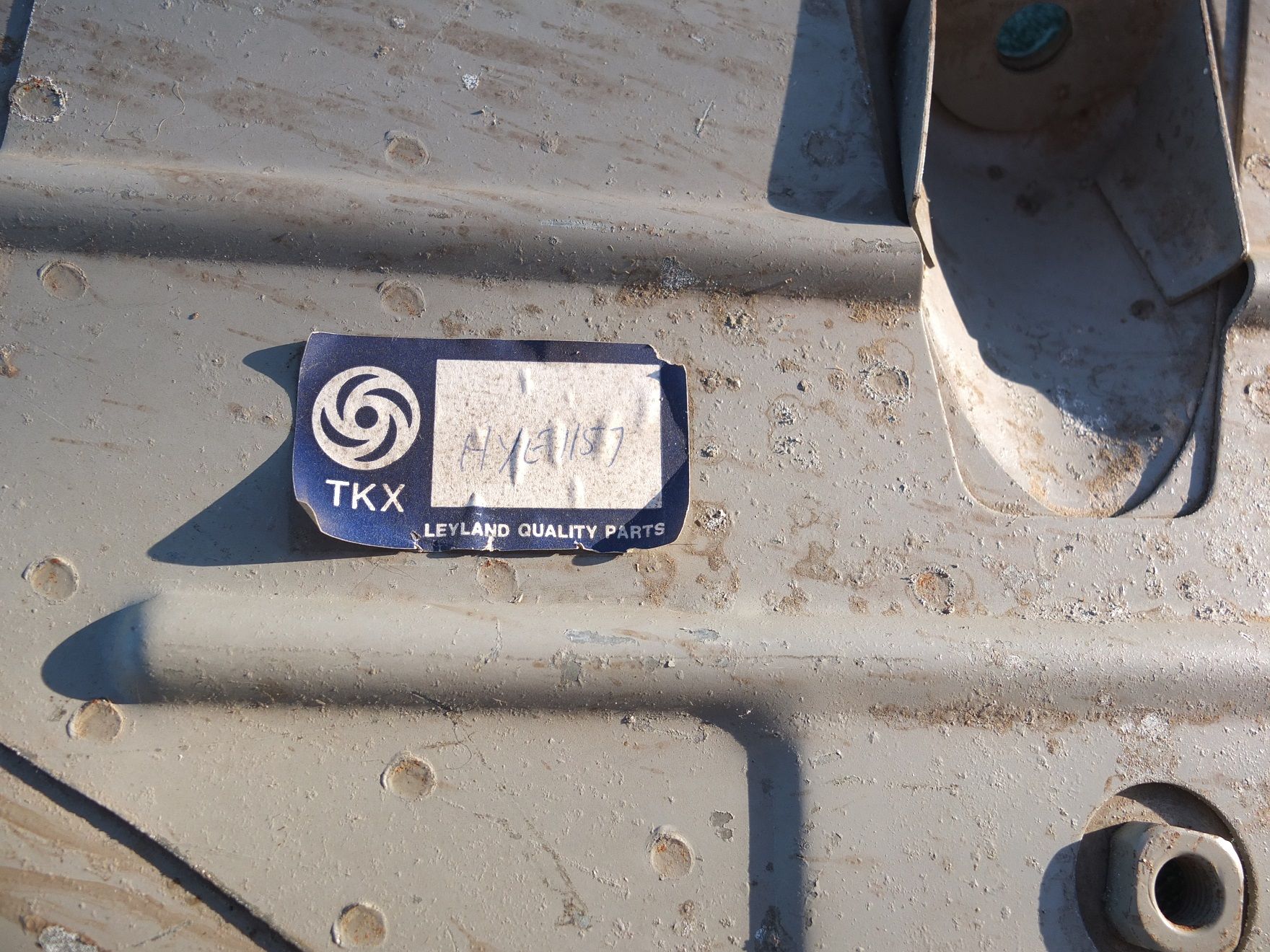
As we approached the car’s 50th anniversary, the Mini Moke Club asked if I was prepared to undertake the restoration in time for the forthcoming International Mini Meeting. This event is held every year, but every five years it returns to the UK. Time was short; we had twelve months to complete a full restoration! I literally took the vehicle for its government test the day before we travelled to the show.
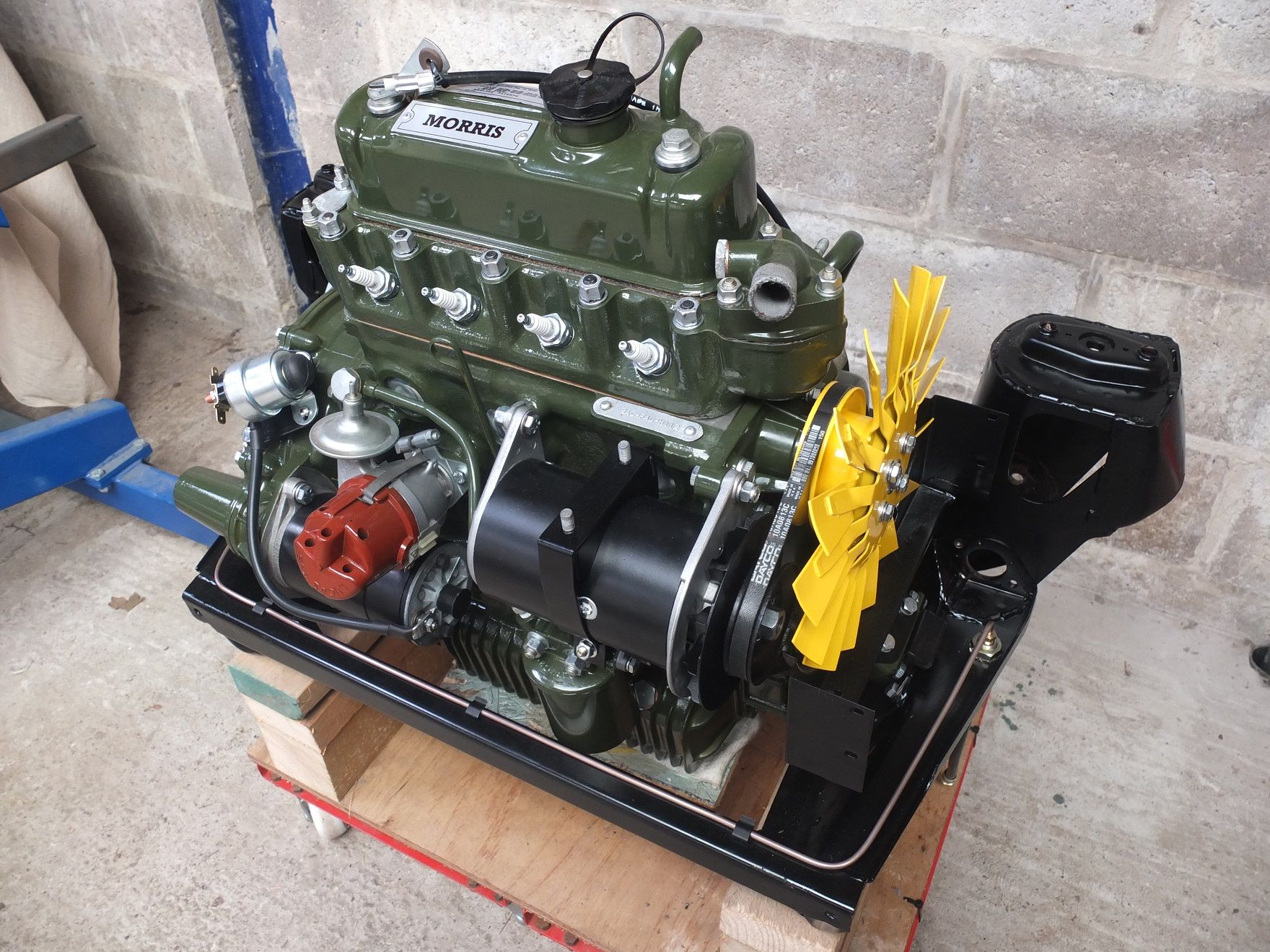
When we arrived at the IMM, Moke Club members helped unload and position the car. However, I was curious as no one commented on the restoration. The following morning, the Club chairman told me they were absolutely stunned when they saw the car and were speechless. Anyone who has restored a vehicle within a marque club will know this is the point at which members typically point out what hasn’t been done correctly!
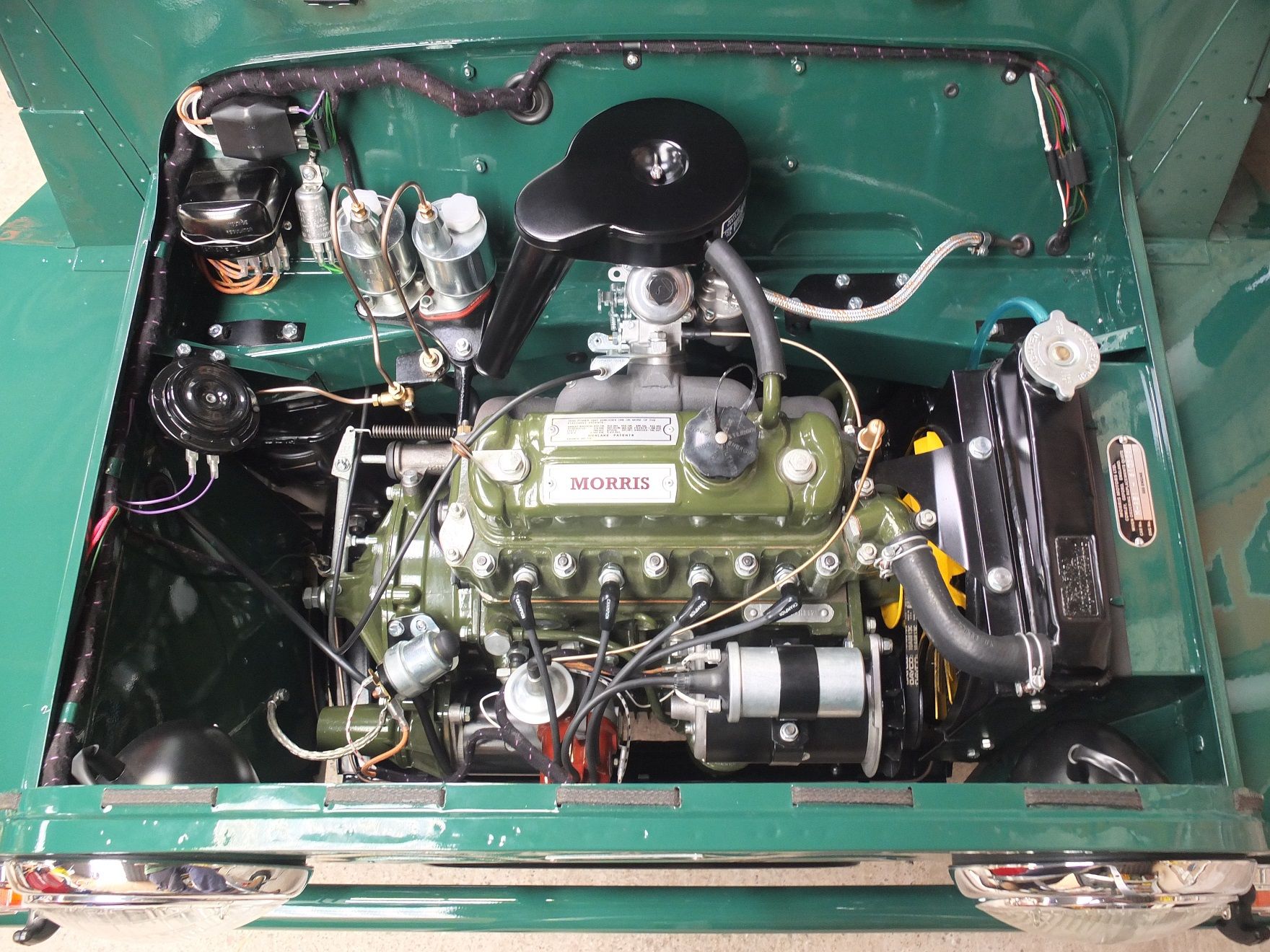
I was determined to return the car to the exact specifications shown on the BMIHT certificate. Through a friend who was the Marketing Manager of Dunlop Tyres, I obtained a set of original but new Dunlop C41 tires. While too old to be used on the road, they are perfect for display purposes!
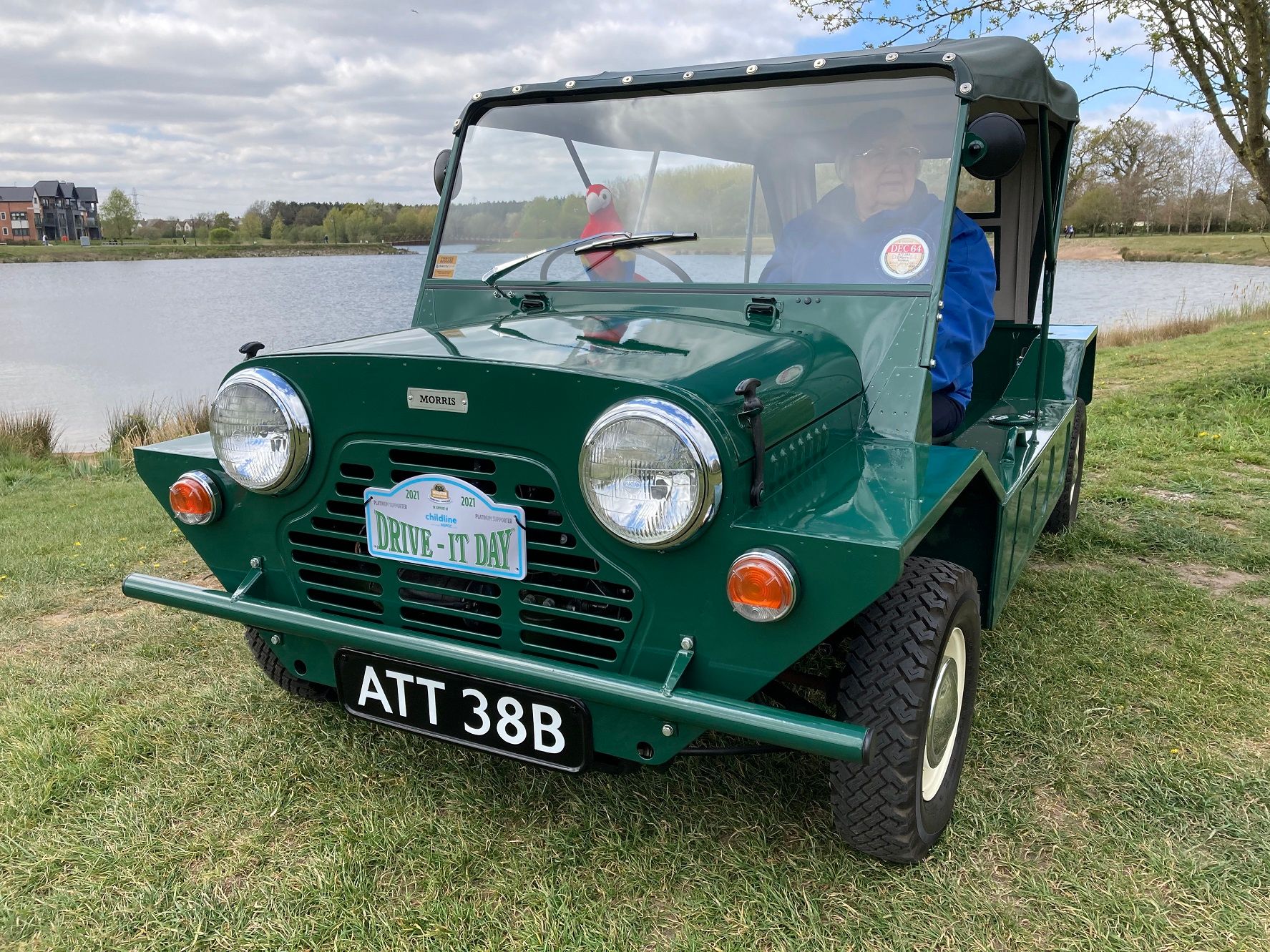
Here's another example of attention to detail: all Mini after-market vacuum advance pipes are now manufactured too short. However, I found that the pipe fitted to an MGA was longer. Once straightened in a vee-block, it could be re-bent, re-painted, and made to fit perfectly. Early Mokes had a unique engine, which is still in place. Early Mini enthusiasts treasure an original radiator manufactured by the Coventry Radiator & Presswork Co. Ltd, and that's still in place too.

Since the restoration, the car has been requested by the Mini Moke Club and showcased on many occasions. It has also participated in Childline® charity Drive It Day events organized by the Federation of British Historic Vehicle Clubs.

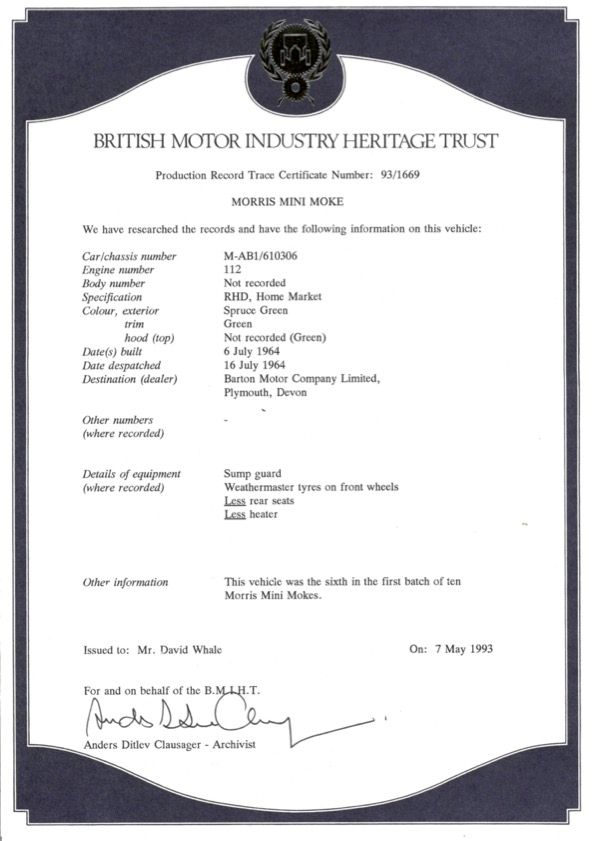
Comments
Sign in or become a deRivaz & Ives member to join the conversation.
Just enter your email below to get a log in link.
